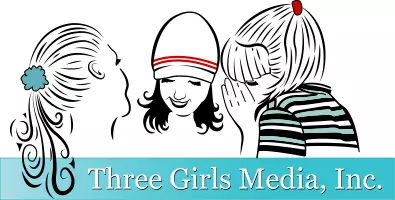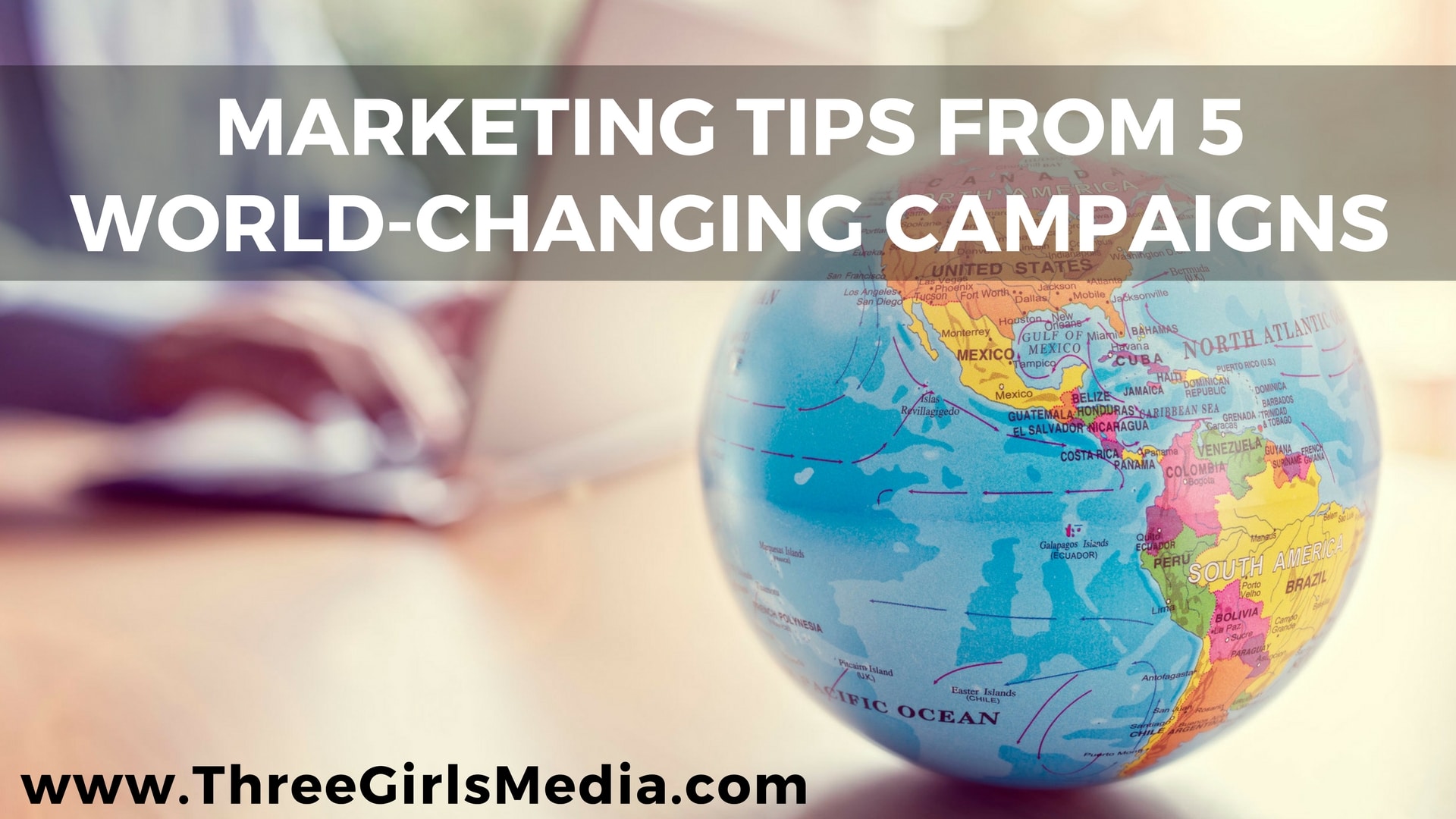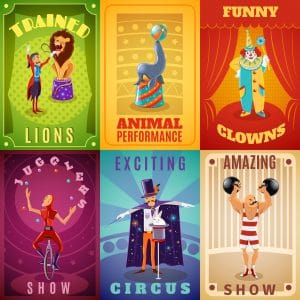Everyone knows when you propose you use a diamond ring, right? But did you know this wasn’t always the case? Since the days of P.T. Barnum, individuals and organizations have been able to change the world by swaying popular opinion and culture through inspiring, incredibly effective marketing campaigns.
How can your brand learn from these noteworthy campaigns?
While your marketing may not be able to completely revolutionize society, it can still make a difference! Keep reading for helpful lessons gleaned from five world-changing marketing campaigns and consider how you may be able to apply them to your business.
1. P.T. Barnum: Deliver Exceptional, Distinctive Value
For those of you that haven’t seen The Greatest Showman, P.T. Barnum was a poor tailor’s son that realized the value of providing an audience with happiness and joy. When his show was called a fake and a fraud, he replied by saying the crowd’s smiles were real.
Barnum promoted sensational, one-of-a-kind acts that had never been seen before – and delivered on them. As he says in the movie, “No one ever made a difference by being like everyone else.” If your brand doesn’t stand out, why would consumers choose your business over a competitor’s?
The marketing tactics Barnum developed hundreds of years ago are still used today: billboards, draping buildings with huge banners promoting events and plastering ads on the sides of public transportation (at the time he used horse-drawn wagons, but you see this today with modern transit companies).
What about the delivery? Copyblogger explains, “Although Barnum used outrageous stunts and hoaxes for promotional purposes, he was insanely focused on delivering exceptional value to his customers…when Barnum pulled one over on you, he told you, and then made sure you left with a smile on your face.”
Here are a couple of questions to ask yourself:
- Do you follow through with everything you promise in your marketing? Whether you’re promoting your business through social media ads, email marketing or Facebook updates, make sure you can follow through on what you promote. Modern consumers have come to expect transparency and honesty; be sure you deliver.
- Are you providing customers with true value? If they invest their hard-earned money with your business, will they be satisfied? It costs five times as much to attract a new client than to retain an old one; the first step in keeping your customer is to make sure they see the value in the services or products they receive from your company.
- What’s different about your business? How do you stand out from your competitors? Use your marketing campaign as an opportunity to establish why consumers should choose your organization.
2. De Beers: Reach a New Audience
In How to Lose a Guy in 10 Days, an advertising executive explains, “A woman in love wants diamonds.” Just watch the ads for diamond jewelry increase as Valentine’s Day gets closer. Modern marketers know our culture agrees; a diamond is a symbol of love, with the ultimate representation being the engagement ring.
But did you know it wasn’t always this way? Back in 1938, the diamond industry was having trouble making sales. The gems were associated with the wealthiest of the wealthiest, so De Beers hired an ad agency to repackage them for the average American. In conjunction with positioning diamonds as part of the “engagement tradition,” the company rolled out the slogan, “A Diamond is Forever” in 1948, marketing the gems as a sign of eternity and sentiment; it’s been used by the company ever since and was even named the best slogan of the 20th century by Ad Age.
How can your company learn from this marketing example?
- Don’t be afraid to reposition your brand to reach a new audience! If sales are waning and you aren’t able to reach new consumers, maybe it’s time to re-evaluate your target customer. Are they truly the best demographic for your business?
- Appeal to positive emotions. De Beers positioned their diamonds as a way to express love that lasts forever. How will you tie positive emotions to your brand in a way that appeals to your consumers?
- Keep a consistent message. De Beers has used the same slogan for decades, despite updating its marketing as the culture and technology change. Once you determine your main message, be consistent with it and repackage it in various ways to reach consumers and remind them why they should work with your brand.
3. Rosie the Riveter: Empower Your Followers
Although the infamous “We Can Do It” poster was originally part of a work-incentive campaign for the Westinghouse Electric & Manufacturing Company, it’s become synonymous with the Rosie the Riveter campaign of World War II, which inspired women to join the industrial labor force. The marketing campaign spread through movies, newspapers, posters, photos and articles, and told women they were important and played a critical role in the war while still on domestic soil.
Following the war, the “We Can Do It” poster became a symbol of female empowerment. As this article explains, “Since then, it has been used by everyone from Clorox to Beyoncé to communicate the idea that women are strong, independent people capable of rolling up their sleeves and getting the job done.”
How can you learn from this marketing example?
- Choose language strategically. “We Can Do It” is the perfect example; it creates a sense of community, unity and inspiration in four simple words.
- Rally around a cause. Show your target consumers how they can make a difference. Nonprofits do this all the time by showing ways to get involved with even just a small donation of money or time.
4. Red Bull: Make It An Event
Back in 2012, Red Bull sponsored Felix Baumgartner’s live space jump, called Red Bull Stratos. More than 8 million viewers watched it on YouTube, plus more than 40 TV networks around the world carried the live feed and more than 130 digital outlets streamed the video. Red Bull also leveraged social media following the jump, soliciting questions via Facebook and Twitter for Baumgartner to answer in a news conference following the jump.
This Red Bull event marked a shift in current digital culture. Rather than responding to traditional ads, modern consumers want to be part of the story and engage with current events.
How can you tie this into your marketing campaign?
- Focus on the experience. Come up with a way for the consumer to be involved. While you may not be able to work with an astronaut, there are countless ways to provide a fun, engaging experience for your target. For example, when the Gilmore Girls Revival was coming to Netflix, coffee shops around the country became “Luke’s Diner” for a day, offering fans a chance to step into Stars Hollow in their local cities. Think about events your target consumers would enjoy that are a natural fit for your brand, and then use them as a chance to create an unforgettable experience they’ll tell all their friends and family about.
- Provide an opportunity for engagement. Don’t make your message all about your brand. Give fans and followers a chance to get involved and ask questions or offer suggestions. Ask them what they want to know or for their advice. Offer an “Ask Me Anything” session – just be willing to truly answer anything they ask if you do this.
5. Netflix: Make Amazing Content
Back when Netflix started, it was a DVD rental company that let users check out movies and TV shows by mail for as long as they wanted. As technology changed, Netflix stayed in the game by offering streaming TV shows and movies and, eventually, even creating their own Netflix Original shows like Orange Is The New Black and Stranger Things. By using its data to see what people are streaming, how quickly users are consuming content and more, they’re able to produce their own content that the public devours quickly. Plus, by dropping an entire season at a time, users receive the instant gratification of binging all the episodes back to back.
In addition to creating content its users love, Netflix promotes it! When you sign into their service, they put their newest shows front and center and add them to the “Recommended for You” section. In addition, they take advantage of other marketing tactics such as social media ads, offering actor interviews with the media and even running traditional ads on network TV channels.
What marketing lessons can you draw from Netflix?
- Create amazing content. You don’t need to develop full-length movies and TV shows to do this. Create informative blog posts, engaging social media updates, entertaining videos and compelling email newsletters. You can use each of these outlets to tell a story and connect with your target consumers.
- Promote your content. Netflix doesn’t just create shows and sit back, expecting users to find them; it puts them front and center. Every time you write a blog post, share it on social media and in your email newsletter. When your email newsletter goes live, share it on your social channels. Is there a piece of content you really want to be front and center? Run a social media ad campaign around it.
While your marketing campaign may not completely change the world, you can learn from those that did and apply the same principles to your strategy! Can you think of other campaigns that changed the culture? Share them in the comments below!
In the meantime, check out these other helpful articles to create a marketing strategy for your brand:
- Content Marketing: How to Use It for Success
- How to Create an Effective PR & Marketing Strategy
- Best Ways to Create an Effective Digital Marketing Strategy
Special Offer:
Sign up for a complimentary consultation during December and receive an Annual Marketing Planning Guide valued at $475! We offer a 30-minute phone consultation with our CEO, and can answer your questions and discuss your specific marketing needs - no strings attached. Call 408-218-2391 or contact us today to arrange your consultation!






